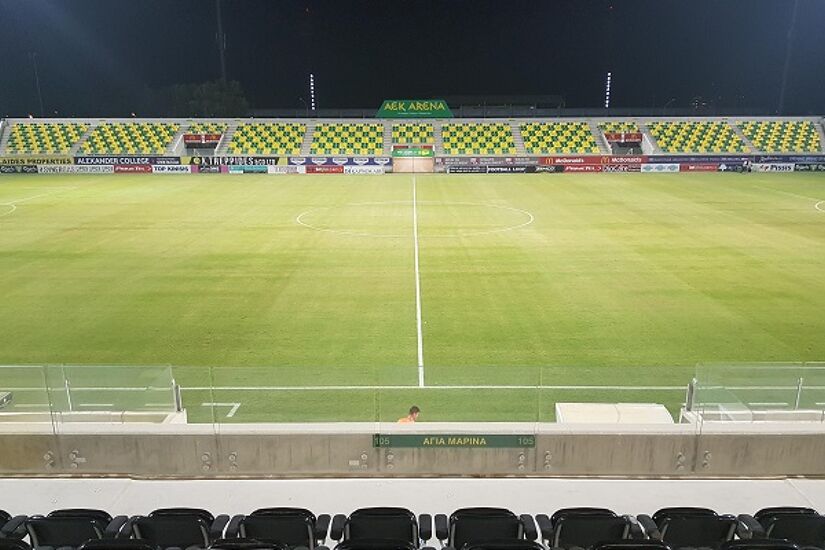Europa League postcard from Larnaca - green shoots show in the intense Cyprus heat

Credit: Niall Newberry (ETPhotos)
Niall Newberry reports from Larnaca
After a couple of days on the east coast of the Cyprus island, it was time to pack my bags before boarding a flight that was to send me further homeward.
To say the events that had unfolded the previous night were disappointing would be an understatement.
However, the dust has settled by the time the plane takes off and I’m left contemplating the positives as opposed to the negatives.
The negatives are reasonably straightforward – Dundalk had just uncharacteristically shipped four goals without reply against a strong AEK Larnaca side and therefore exited Europe until next year.
In fact, it won’t be until next year that the positives will start to become more evident. Why is that?
It’s because Dundalk’s two wins and single draw from their four Europa League qualifying matches this season has seen their coefficient rise to a healthy seven.
This would all but guarantee seeding in the first qualifying round of the Champions League next time out, should the Lilywhites reclaim their League of Ireland crown from Cork City of course.
However, the less written of the actual match itself the better, so enough about the football for now – what about Larnaca as a place?
That’s definitely another major silver lining for us, the Dundalk following. We have been given the opportunity to visit both Tallinn and Larnaca in the space of less than a month, while the town has been painted in black and white back home.
At the risk of sounding too obvious, the first thing that hits you in Larnaca is the heat. The place is just about hot enough to scald a lizard.
Speaking of which, you may come across some of the reptilian creatures (albeit very small), camouflaging themselves in the small and narrow streets of what the third largest city in Cyprus.
Slightly less charming though, are the considerable number of large cockroaches you’re also likely to encounter whilst staying in this subtropical country.
Wearing a Dundalk shirt as I hopped into my airport taxi, there was a brief silence before the driver utters the words, “four-zero.”
Wondering if I’ve just been ripped off, it suddenly dawns on me that he’s actually referring to the match and after politely disagreeing with his prediction.
He responds: “You come here to Larnaca and you want a result? That’s a shame.” Perhaps he knew something we didn’t.
While the Dundalk team had based themselves in the capital Nicosia, the Finikoudes area of Larnaca acted as a hub for the much of the travelling support.
The carnival atmosphere about the place on Wednesday night was truly something to behold as the Lilywhite army enjoyed the wide range of pubs, restaurants in addition to the attractive beach that is incorporated within Finikoudes.
There also seemed to be far more enthusiasm about this match from the locals, which wasn’t necessarily the case in Tallinn.
Braving the treacherous 36-degree heat the following morning, a trip is made to Kition – an archaeological site that now preserves the ruins of the ancient city.
Visits to the Church of Saint Lazarus and Larnaca Medieval Castle follow before the time comes for me to make my way to the AEK Arena for what is the main event.
The press box in this modern stadium is indoors, behind a glass panel, that offers at least a little reprieve from the conditions.
Complimentary water and even pizza are aplenty, giving a fair indication of the typical Cypriot hospitality that is a true feature of this island nation.
The local reporters are having some inevitable difficulty with some of the names of the visiting players, most notably Sean Hoare, but the Irish media are more than happy to offer their assistance and vice versa.
The result doesn’t go the way of Dundalk, unfortunately, meaning plans for a trip to Graz in Austria for the third qualifying round must be aborted.
Having said that, a wonderful time was had in Larnaca by all who visited and the amazing friendliness of the natives will be sorely missed, if not the climate.

